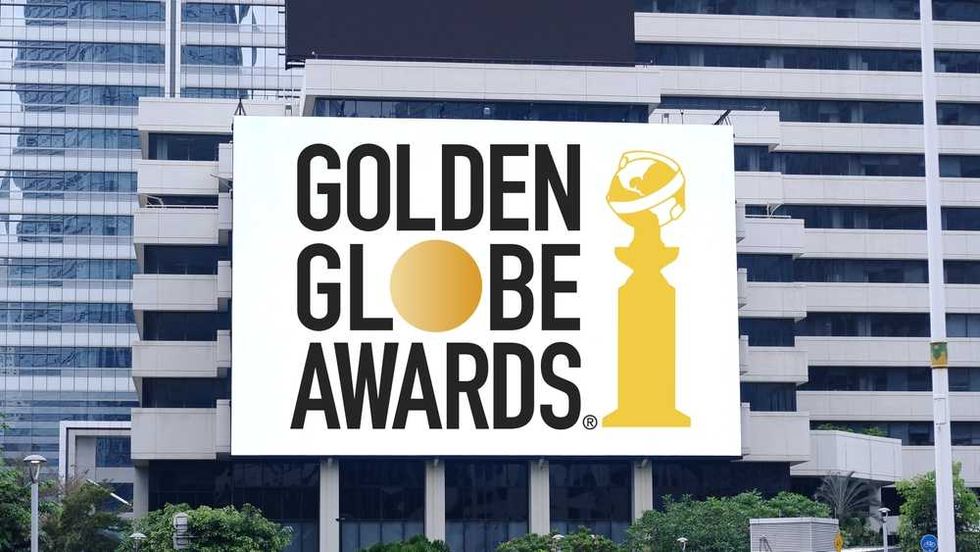Top Stories
Golden Globes Opens Controversial Pay-to-Play for Podcasters

URGENT UPDATE: The Golden Globes is under fire for introducing a controversial pay-to-play model that allows far-right podcasters to gain influence and credibility through hefty financial contributions. According to a report from Oliver Darcy’s “Status,” the Golden Globes will now feature a “Best Podcast” award, with the potential for influencers to secure a win by purchasing promotional packages valued at over $75,000.
This shocking revelation comes amid growing scrutiny of the Globes’ integrity as Penske Media Corporation founder Jay Penske has greenlit the initiative. The report indicates that promotional pitches have been sent to at least some of the 25 eligible podcasts, which include notable figures like Joe Rogan, Bill Simmons, and Alex Cooper’s “Call Her Daddy.” Other controversial figures such as Tucker Carlson and Candace Owens, known for their polarizing viewpoints, are also included.
What makes this development particularly alarming is that Penske not only oversees the awards but also owns influential media outlets such as Variety, Rolling Stone, and Deadline Hollywood. As outlined in the report, the marketing packages provide podcasters with a direct line to the voters—journalists from over 76 nations—who will ultimately determine the winners.
The $75,000 package reportedly includes a “Variety Creative Impact Award,” a feature story across Variety’s platforms, and even a staged presentation at a Penske Media event. This means that those willing to pay can effectively secure not just an award, but also extensive media coverage, a scenario described as a “glossy stage” for far-right influencers.
Previous nominees have engaged in “For Your Consideration” advertising to lobby for votes. However, the current situation raises serious ethical questions. Darcy highlights, “What’s different now is that Penske doesn’t just control the publications covering the campaigns; he owns the awards show itself.” This dual role creates a troubling conflict of interest, as the same entity manages both the promotional narrative and the awards process.
The potential for a ‘paid sponsorship’ disclosure may technically distinguish advertisements from traditional editorial content, but the implications remain significant. The report suggests that this structure effectively hands a platform to figures like Carlson and Owens, allowing them to gain legitimacy through financial contributions while undermining the awards’ credibility.
As the Golden Globes gears up for this new direction, the fallout from this decision could reshape public perception of the awards and the media landscape as a whole. The consequences of this pay-to-play model are unfolding rapidly, and observers are left wondering how it will impact the awards’ integrity and the broader media environment.
Stay tuned for further updates as this story develops.
-

 Sports1 week ago
Sports1 week agoSteve Kerr Supports Jonathan Kuminga After Ejection in Preseason Game
-

 Politics1 week ago
Politics1 week agoDallin H. Oaks Assumes Leadership of Latter-day Saints Church
-

 Lifestyle1 week ago
Lifestyle1 week agoDua Lipa Celebrates Passing GCSE Spanish During World Tour
-

 Business1 week ago
Business1 week agoTyler Technologies Set to Reveal Q3 2025 Earnings on October 22
-

 Lifestyle1 week ago
Lifestyle1 week agoKelsea Ballerini Launches ‘Burn the Baggage’ Candle with Ranger Station
-

 Entertainment1 week ago
Entertainment1 week agoZoe Saldana Advocates for James Cameron’s Avatar Documentary
-

 World1 week ago
World1 week agoD’Angelo, Iconic R&B Singer, Dies at 51 After Cancer Battle
-

 Science1 week ago
Science1 week agoChicago’s Viral ‘Rat Hole’ Likely Created by Squirrel, Study Reveals
-

 Health1 week ago
Health1 week agoRichard Feldman Urges Ban on Menthol in Cigarettes and Vapes
-

 Health1 week ago
Health1 week agoCommunity Unites for Seventh Annual Mental Health Awareness Walk
-

 Business1 week ago
Business1 week agoMega Millions Jackpot Reaches $600 Million Ahead of Drawings
-

 Business1 week ago
Business1 week agoMLB Qualifying Offer Jumps to $22.02 Million for 2024









